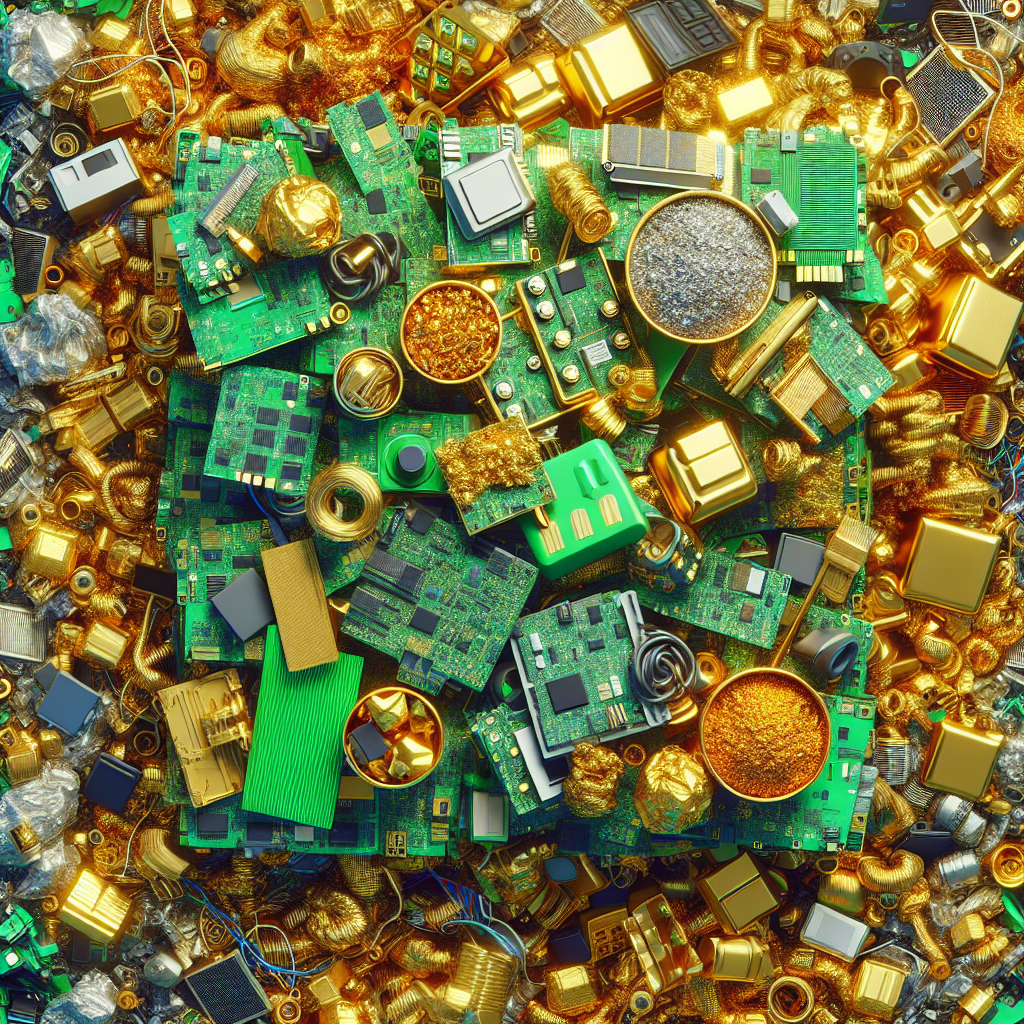Blog Ecobraz Eigre

How much gold, copper and silver is in Brazilian electronic waste
Brazilian e-waste contains significant quantities of valuable metals, such as gold, copper and silver, which can be recovered through appropriate collection and recycling processes. The correct disposal of this waste is regulated by the National Solid Waste Policy and by specific rules aimed at minimizing environmental impacts.
Quantity of precious metals in Brazilian e-waste
Official studies indicate that e-waste generated in Brazil has a considerable composition of metals such as gold, copper and silver. According to data from the National Solid Waste Management Information System (SINIR) (sinir.gov.br), approximately 1.5 grams of gold, 250 grams of copper and 3 grams of silver can be found in every ton of electronic waste collected.
Relevance of gold in electronic waste
Gold is widely used in electronic components due to its high conductivity and resistance to corrosion. According to the Ministry of the Environment, recovering the gold present in e-waste is crucial to reducing mining and environmental impacts (mma.gov.br). Although the amount per ton seems small, the total concentration accumulated in national e-waste represents a significant source for the circular economy.
Copper: the most present and valued metal
Copper, present in wires, boards and connectors, is the most abundant metal in e-waste. According to CETESB (cetesb.sp.gov.br), copper represents around 50% of the total weight of recoverable metals in this waste. Recycling copper contributes to reducing mining and the associated impacts.
Importance of silver in the context of e-waste
Silver, used in circuits, contacts and solders, despite being in smaller quantities than gold and copper, plays a strategic role in the metallic recovery of e-waste. The National Solid Waste Policy (Law No. 12.305/2010) establishes guidelines for the management and recovery of these materials (planalto.gov.br).
Collection and proper disposal: essential for metal recovery
The correct management and collection of e-waste is essential to enable the recovery of precious metals. The National Solid Waste Management Information System stresses the importance of the participation of the public and private sectors in the proper management of this waste (sinir.gov.br).
Security in the disposal of media and storage devices
For the safe disposal of storage devices containing confidential data, it is recommended to use services specializing in the sanitization of hard drives and electronic media. These processes guarantee the complete elimination of information, in accordance with the best technical practices recommended by the guidelines of the Ministry of Science, Technology and Innovation (mcti.gov.br).
Applicable legislation
Law No. 12.305/2010, which establishes the National Solid Waste Policy, defines responsibilities and mechanisms for the integrated management of waste, including electronic waste. Decree No. 10.936/2022 complements the rules on reverse logistics for these materials (planalto.gov.br).
Conclusion
Brazilian e-waste represents a substantial source of valuable metals, such as gold, copper and silver, whose recovery must be promoted through responsible, appropriate processes in line with current legislation. The expansion of electronic waste collection and the adoption of specific services for safe disposal are essential strategies for sustainable development and the circular economy in Brazil.

Deixe um comentário
O seu endereço de e-mail não será publicado. Campos obrigatórios são marcados com *